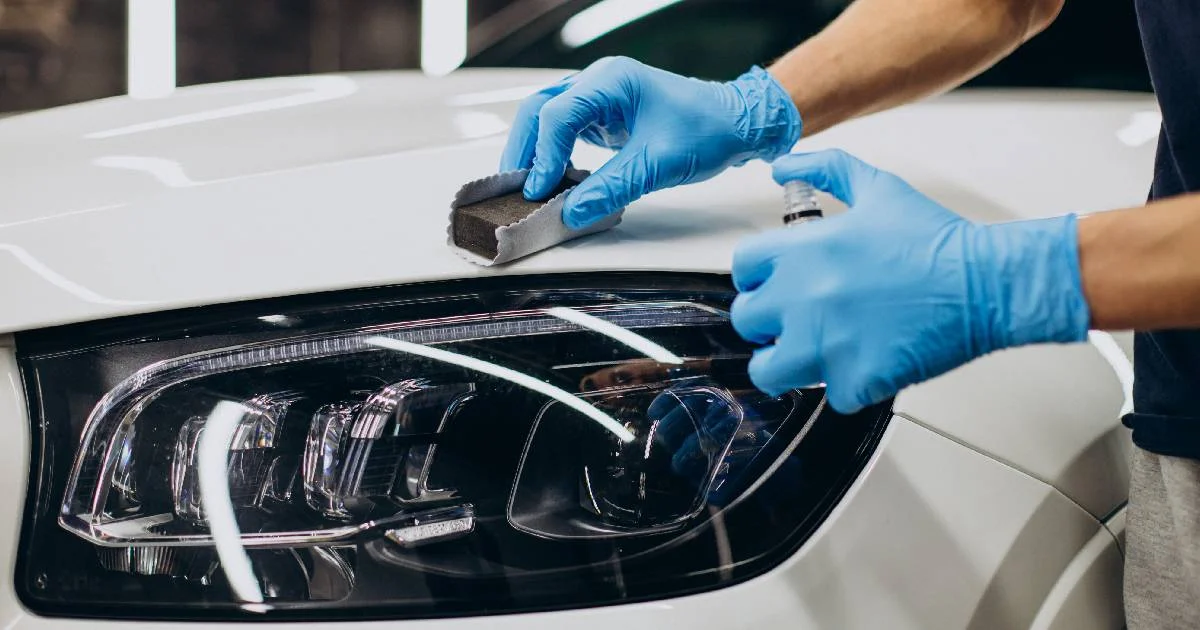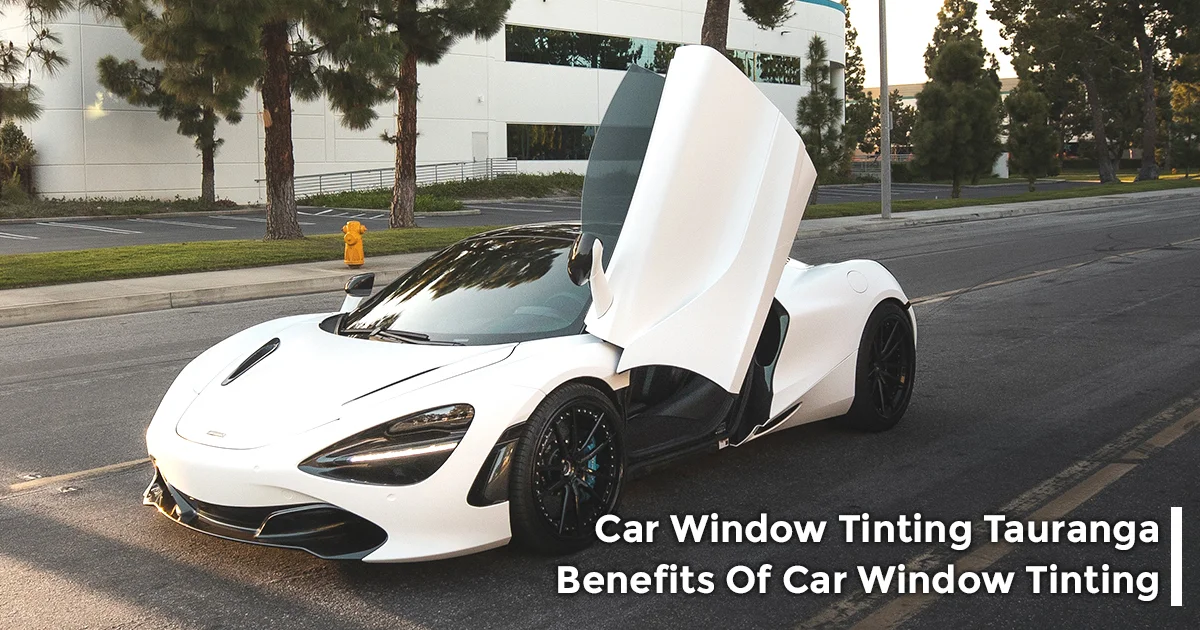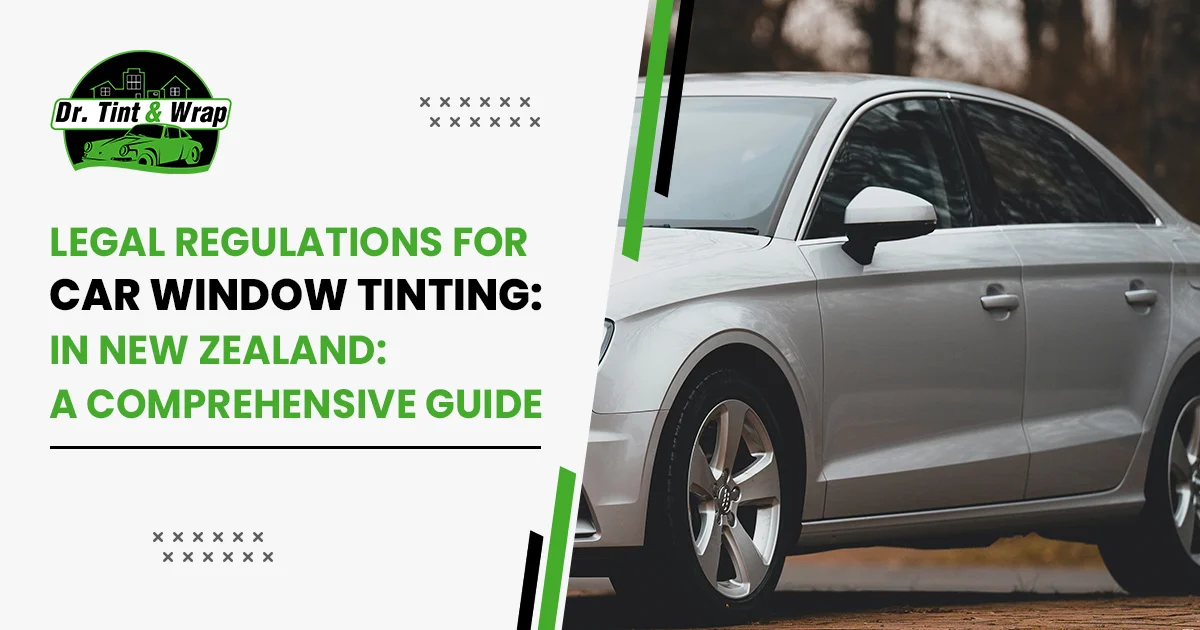
Why Ceramic Coating is a Must-Have for Your Car in Hamilton
06 Nov 2023, By AdminWhen it comes to protecting your car's exterior and keeping it looking sleek and shiny, ceramic coating is a game-changer. If you're a car owner in Hamilton, you're likely familiar with the challenges that your vehicle faces due to the city's diverse weather conditions, including harsh winters and intense sunlight. In this blog, we'll explore the benefits of ceramic coating, particularly for those in Hamilton, and why it's a must-have for your car.
What is Ceramic Coating?
Ceramic coating is a liquid polymer that is applied to the exterior surfaces of your car. This coating chemically bonds with the factory paint, creating a protective layer that offers numerous advantages. It's a highly effective method for safeguarding your vehicle's paintwork against various environmental contaminants and harsh weather conditions.
Benefits of Ceramic Coating in Hamilton
Hamilton is no stranger to harsh winters, with snow, ice, and road salts being common threats to your car's paint. Ceramic coating creates a barrier that shields your car's exterior from these harsh elements. It also makes it easier to remove snow and ice, preventing damage to the paint during the cleaning process.
In the summer, Hamilton can experience intense sunlight, which can cause your car's paint to fade and deteriorate over time. Ceramic coating acts as a shield against harmful UV rays, preserving the vibrant color and gloss of your car's finish.
Your car is constantly exposed to contaminants like bird droppings, tree sap, and insects. Ceramic coating forms a hydrophobic surface that repels these substances, preventing them from bonding to the paint and causing permanent damage. It also makes cleaning your car much easier, as dirt and grime slide off more effortlessly.
Ceramic coating provides a long-lasting shine that surpasses traditional wax or sealant. Your car will maintain its showroom-like finish for years, reducing the need for frequent polishing or detailing.
While ceramic coating doesn't make your car completely scratch-proof, it does offer a level of protection against light scratches and swirl marks. It acts as a sacrificial layer, absorbing the impact and preserving your car's underlying paint.
One of the most remarkable features of ceramic coating is its hydrophobic nature. Rainwater and other liquids bead up and roll off the surface, keeping your car cleaner and reducing water spots.
With ceramic coating, you'll spend less time and effort on maintaining your car's appearance. Cleaning is a breeze, and you won't need to wax your car regularly. This convenience is especially valuable in a city like Hamilton, where weather conditions can be challenging.

Car Window Tinting Tauranga Benefits of Car Window Tinting
06 Nov 2023, By AdminWindow Tinting is becoming increasingly popular in Tauranga. Today more and more car owners are realizing the benefits of having their car windows tinted. Let's see some advantages of car window tinting in Tauranga, and why it's a great investment for any car owner in Tauranga.
The most significant benefit of car window tinting is that it reduces the amount of heat that enters the car. Overall all of New Zealand experiences extremely hot temperatures during the summer months, which can make it uncomfortable for Dr. drivers and passengers. Car window tinting in Tauranga can significantly reduce the heat that enters the car, making it a more comfortable and cool place to be, especially during the hottest parts of the day. This can also help to reduce the load on your car's air conditioning system, which can save you money on fuel costs.
Another advantage of car window tinting in Tauranga is that it reduces the amount of harmful UV and IR rays that enter the car. The sun's UV and IR rays can be harmful to both the car's interior and to the occupants. They can cause the car's interior to fade or crack, and can also cause skin damage or even skin cancer. Car window tinting can block up to 99% of UV and IR rays, which can provide significant protection for both the car and its occupants.
Car window tinting can also improve the privacy and security of your vehicle. Tinted windows make it more difficult for people to see inside your car, which can be useful if you often leave valuable items inside and goes out. Car window tinting can also make it more difficult for thieves to break into your car, as it makes it harder for them to see what's inside.
Car window tinting can enhance the overall appearance of your car. Tinted windows give a stylish look to any vehicle, and can make it stand out from the crowd. Tinting can also add a layer of sophistication to your car's appearance, making it look more luxurious and professional.
In Tauranga, many companies offer car window tinting services. Dr. Tint & Wrap Tauranga is a reputable company with experience in the field. Dr. Tint & Wrap uses high-quality window film and offers a warranty on its work. This will ensure that your car window tinting is of the highest quality and that it will last for many years to come..
In conclusion, car window tinting is a great investment for any car owner in Tauranga. It can reduce the amount of heat and UV rays that enter the car, improve privacy and security, and enhance the overall appearance of the vehicle. If you're considering car window tinting in Tauranga, be sure to choose a reputable company that uses high-quality window film, and that offers a warranty on their work.

Dr. Tint & Wrap: Elevating Your Driving Experience with Professional Car Audio Fitting Services
06 Nov 2023, By AdminIn the ever-evolving world of automobile technology, one aspect remains timeless and treasured: the joy of music on the road. Whether you're cruising down the highway or stuck in traffic, the right car audio system can transform your drive into an unforgettable experience. Dr. Tint & Wrap, a renowned name in automotive customization, has taken the wheel by offering professional car audio fitting services that are second to none. In this blog, we'll delve into the importance of car audio fitting services and explore the numerous benefits of choosing Dr. Tint & Wrap for your audio upgrade needs.
The Importance of Car Audio Fitting Services
A car audio system is more than just a collection of speakers and wires; it's a harmonious blend of engineering and artistry. Properly installing and tuning these systems is crucial for unlocking their full potential. Here's why car audio fitting services are essential:
1. Sound Quality: Achieving optimal sound quality requires precise placement of speakers, subwoofers, and amplifiers. Professional installation ensures that your audio system delivers clear, balanced, and immersive sound.
2. Safety: DIY installations can lead to electrical issues, safety hazards, and voided warranties. Car audio fitting services by experts like Dr. Tint & Wrap guarantee a safe and reliable setup.
3. Aesthetics: Professional installers consider both functionality and aesthetics, seamlessly integrating components into your vehicle's interior for a polished and clean look.
4. Customization: Every car and owner is unique. Professional fitting services allow for customization, ensuring your audio system suits your preferences and style.
Benefits of Choosing Dr. Tint & Wrap
Dr. Tint & Wrap isn't just any car audio fitting service; they're a trusted name in the automotive customization industry. Here are some compelling reasons why you should consider them for your car audio upgrade:
1. Expertise: With years of experience, Dr. Tint & Wrap's technicians are skilled in the art of car audio installation. They understand the intricacies of different vehicle makes and models, ensuring a tailored solution for each client.
2. Premium Products: Dr. Tint & Wrap sources only the finest car audio components from top brands, guaranteeing high-quality sound and long-lasting performance.
3. Customization: Whether you're a bass enthusiast, an audiophile, or simply seeking improved sound clarity, Dr. Tint & Wrap can design and install a system that aligns with your unique preferences.
4. Cutting-Edge Technology: Staying up-to-date with the latest advancements, Dr. Tint & Wrap offers state-of-the-art audio systems with features like smartphone integration, touchscreens, and voice controls.
5. Attention to Detail: Beyond exceptional sound quality, Dr. Tint & Wrap pays meticulous attention to every detail, ensuring a seamless and aesthetically pleasing installation that complements your vehicle's interior.
6. Customer Satisfaction: Their commitment to customer satisfaction is unparalleled. Dr. Tint & Wrap takes the time to understand your requirements, making sure you leave their shop with a smile on your face.
When it comes to car audio fitting services, Dr. Tint & Wrap is the name you can trust. Elevate your driving experience with a professionally installed audio system that brings your favorite tunes to life. Say goodbye to subpar sound quality and hello to the symphony of music on the road. Contact Dr. Tint & Wrap today and embark on a journey of sonic excellence that will make every drive a memorable one. Your ears—and your passengers—will thank you.

Legal Regulations for Car Window Tinting in New Zealand: A Comprehensive Guide
06 Nov 2023, By AdminCar window tinting has become a popular choice for vehicle owners in New Zealand, offering benefits such as privacy, UV protection, and heat reduction. However, it’s crucial to understand and adhere to the legal regulations surrounding window tinting to avoid fines and ensure road safety. In this blog post, we will explore the laws regarding window tinting in New Zealand and provide essential tips for staying within legal limits.
Understanding New Zealand's Window Tinting Regulations
1. Light Transmission: According to New Zealand law, the front windscreen must have a minimum of 70% light transmission, while the front side windows (the windows adjacent to the driver and front passenger) must have a minimum of 35% light transmission.
2. Rear Windows: There are no specific regulations regarding the tint darkness for rear windows, but it is recommended to maintain good visibility, especially at night.
3. Reflectivity: Window tints must not be highly reflective to the extent that they impair the driver’s vision or distract other drivers.
4. Tinting Film Quality: The tinting film used must be of high quality and not damaged or discolored, ensuring clear visibility.
Tips for Staying Within Legal Limits
1. Choose Professional Installation: Opt for professional window tinting services. Experienced technicians are aware of the legal limits and can ensure your tinting complies with the regulations.
2. Ask for Legal Tints: When getting your windows tinted, clearly specify to the service provider that you need tints that comply with New Zealand regulations. Reputable providers will use films that meet legal standards.
3. Avoid DIY Tinting Kits: Do not attempt to tint your windows using DIY kits unless you are confident about adhering to legal limits. Incorrect installation can result in darker tints, leading to legal consequences.
4. Regularly Check Tint Condition: Over time, window tints can deteriorate, becoming darker or developing bubbles. Regularly inspect your tints and replace them if they no longer meet the legal standards.
5. Educate Yourself: Familiarize yourself with the local regulations. Understanding the legal limits will help you make informed decisions about your vehicle’s window tinting.
Responsible vehicle ownership includes complying with legal regulations to ensure road safety and avoid legal issues. By adhering to New Zealand’s window tinting laws and following the tips mentioned in this guide, you can enjoy the benefits of window tinting while staying within the boundaries of the law. Remember, when in doubt, consult professionals who can guide you in choosing the right window tints that meet both your needs and legal requirements. Safe driving starts with clear visibility, so let’s tint responsibly and enjoy the many advantages it offers within the legal limits of New Zealand.
